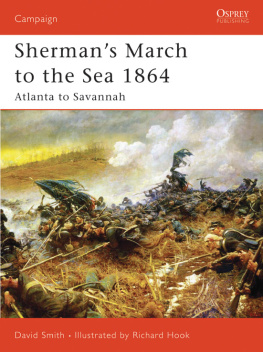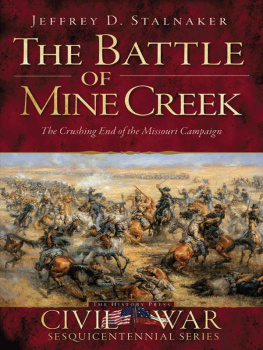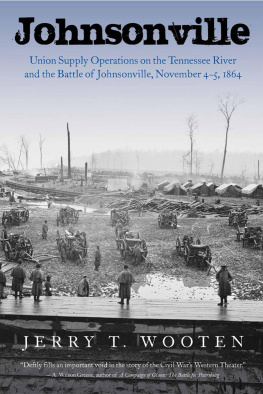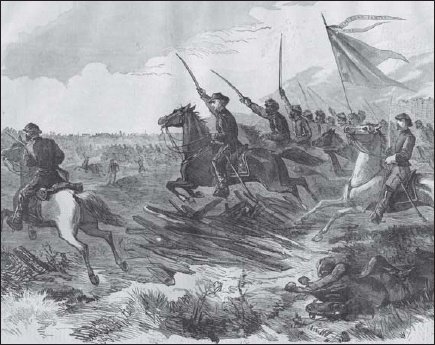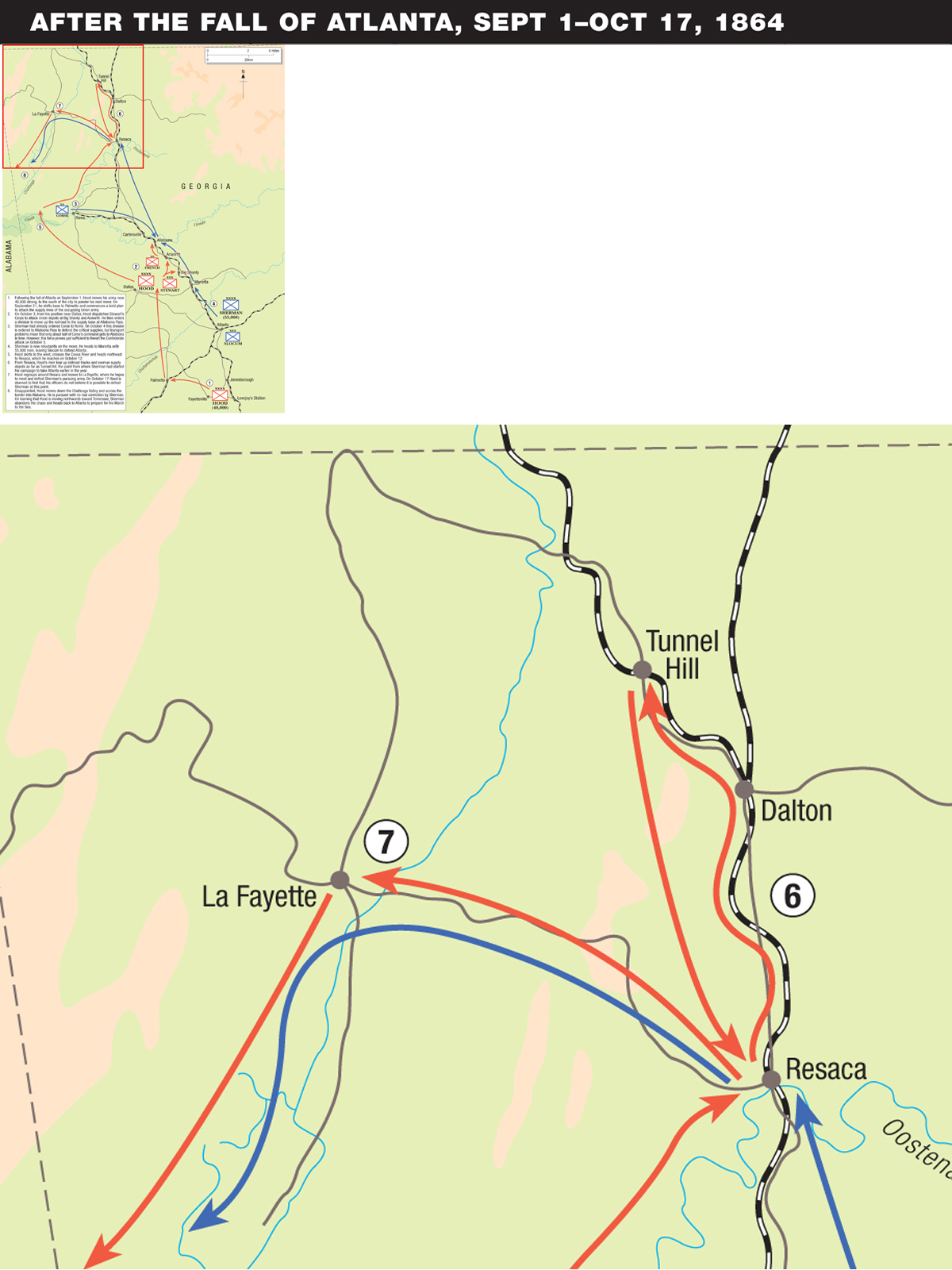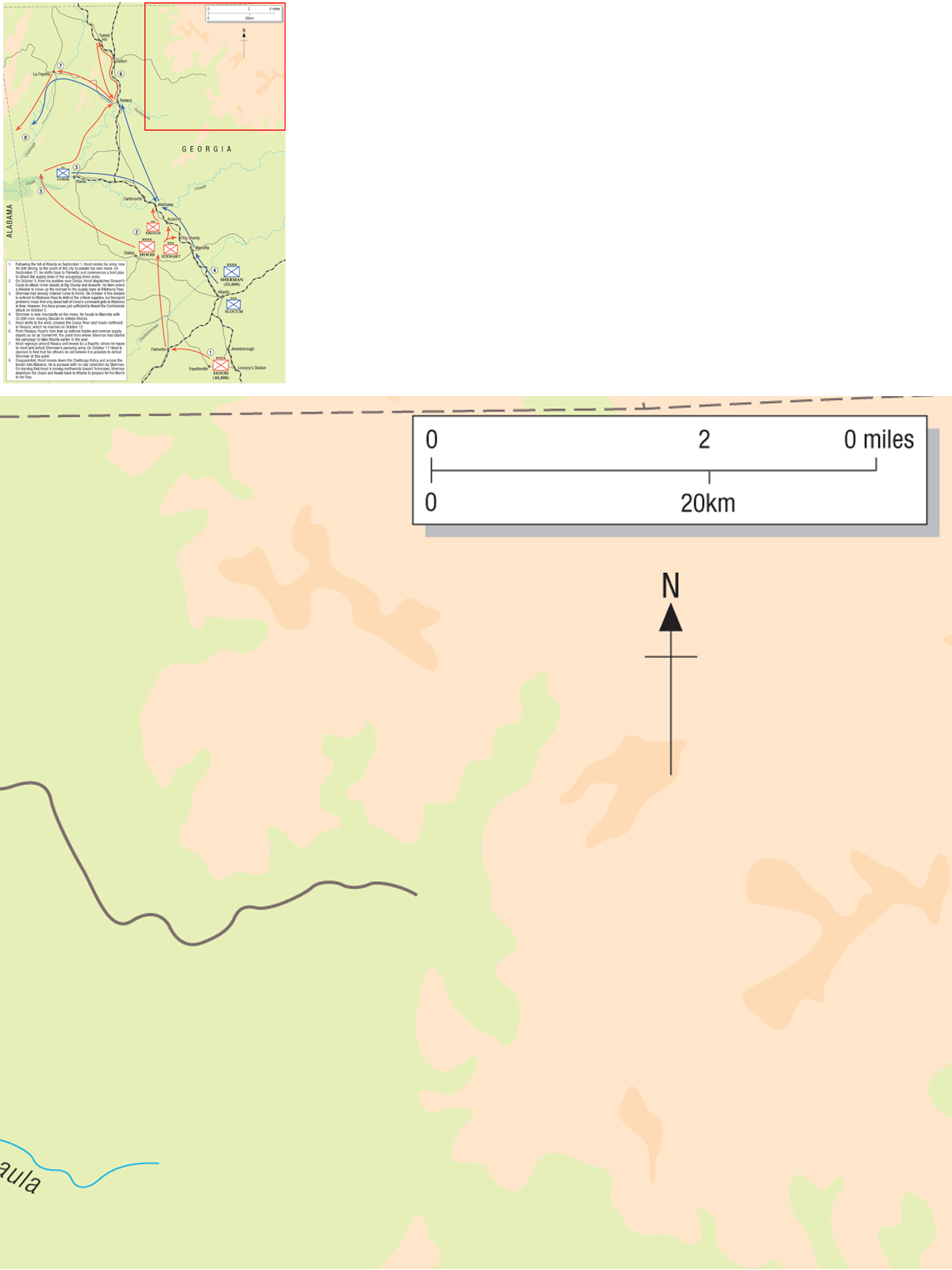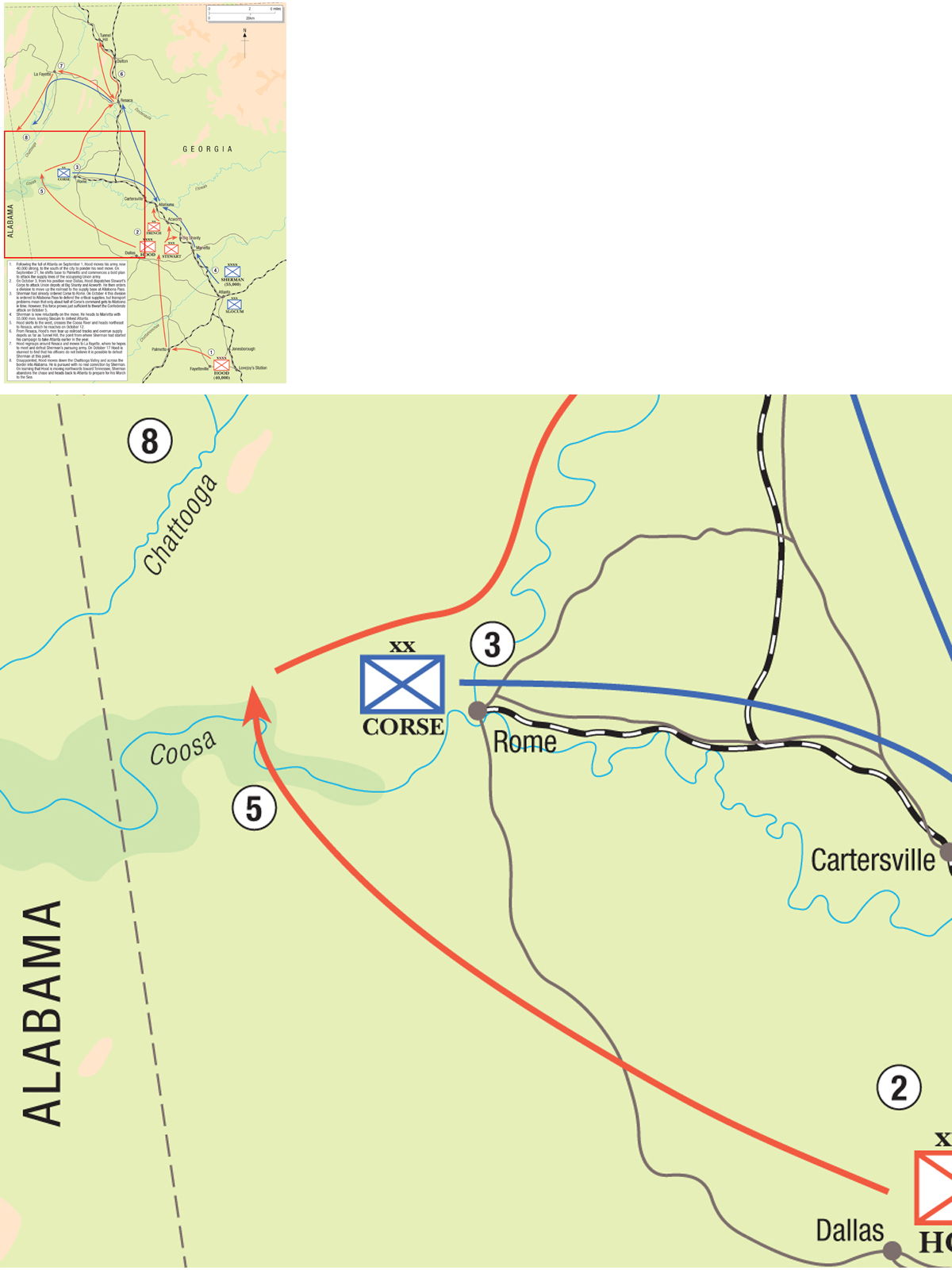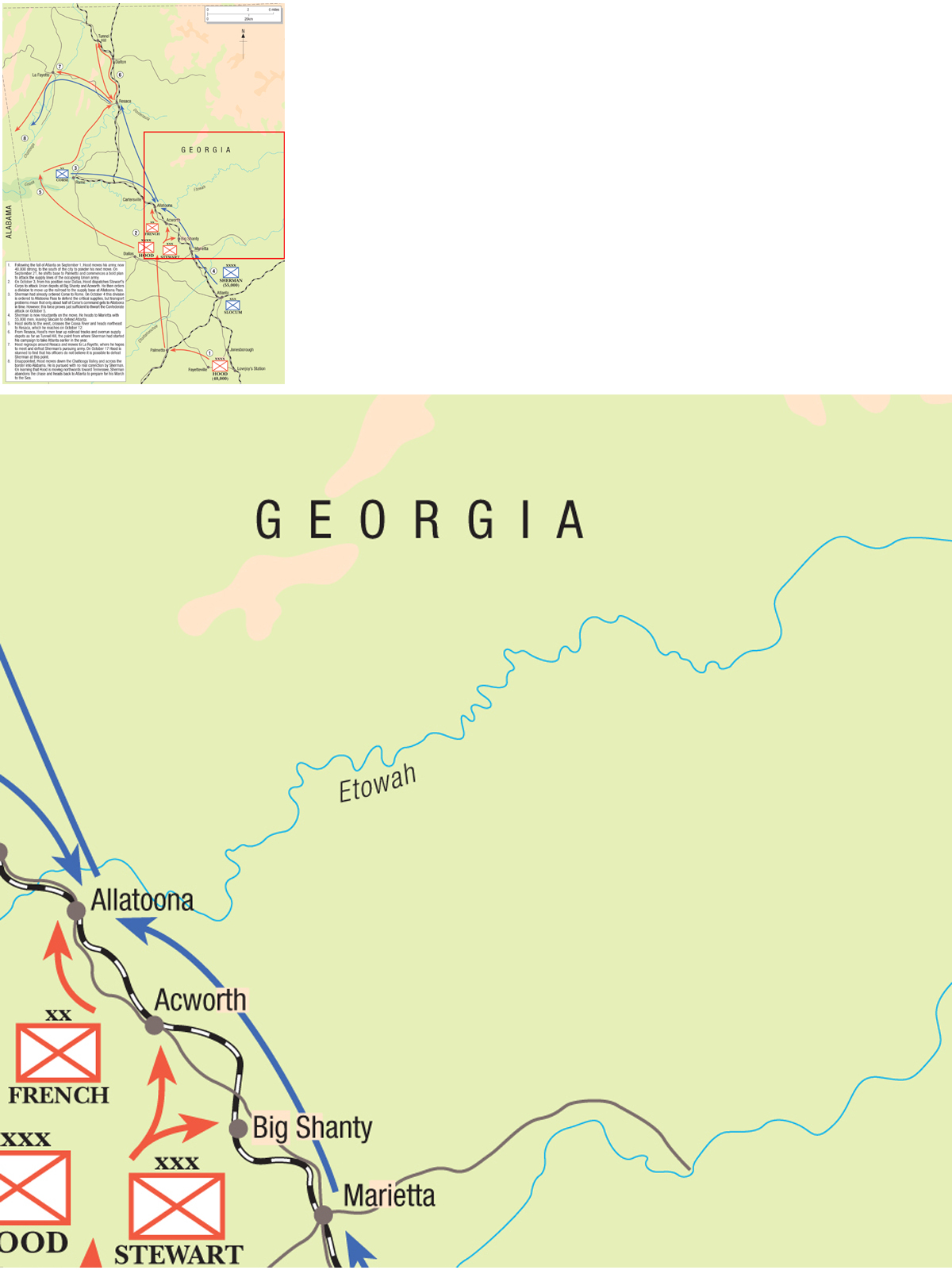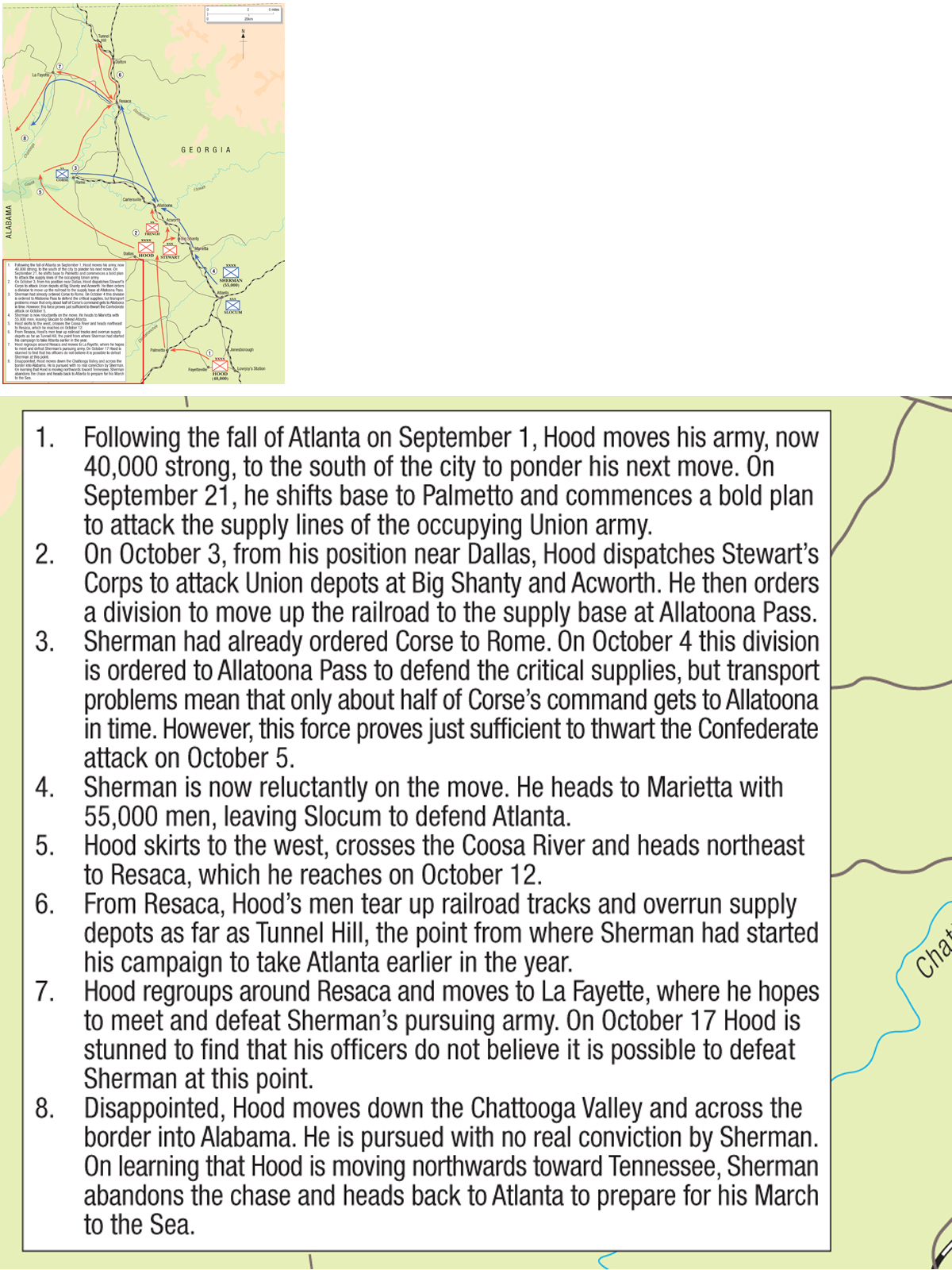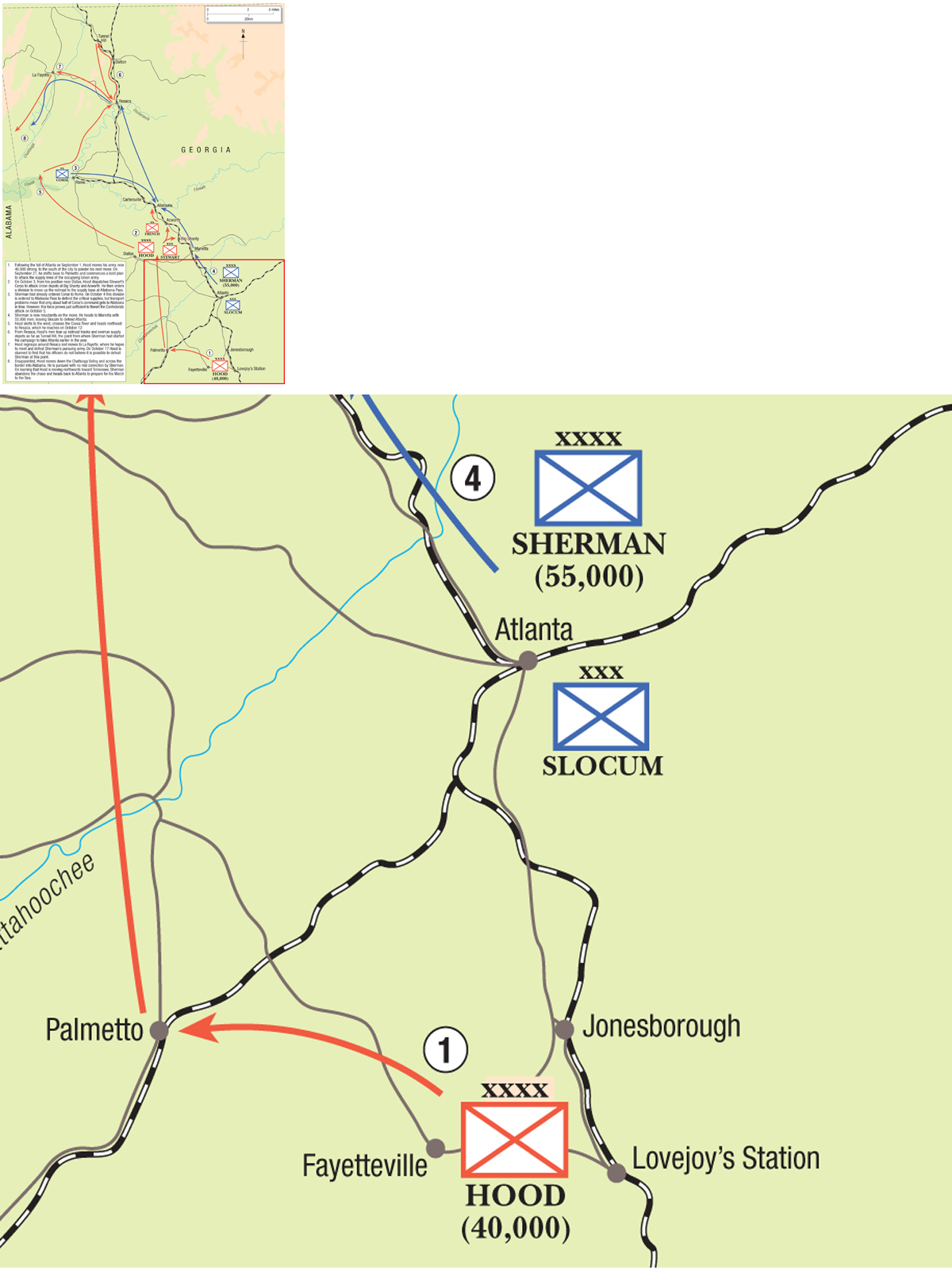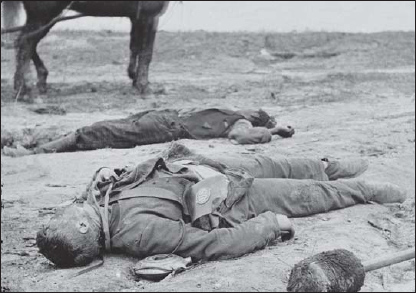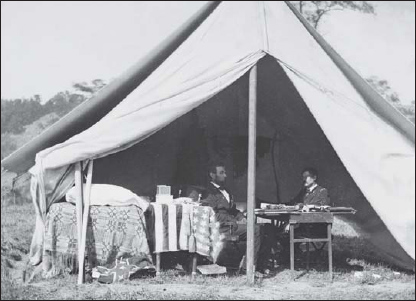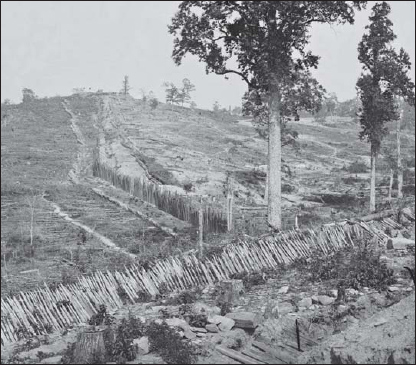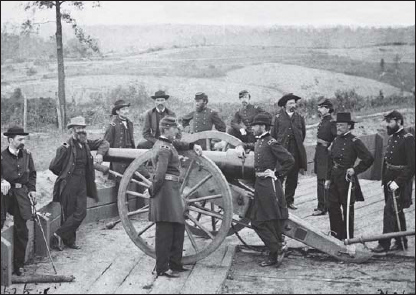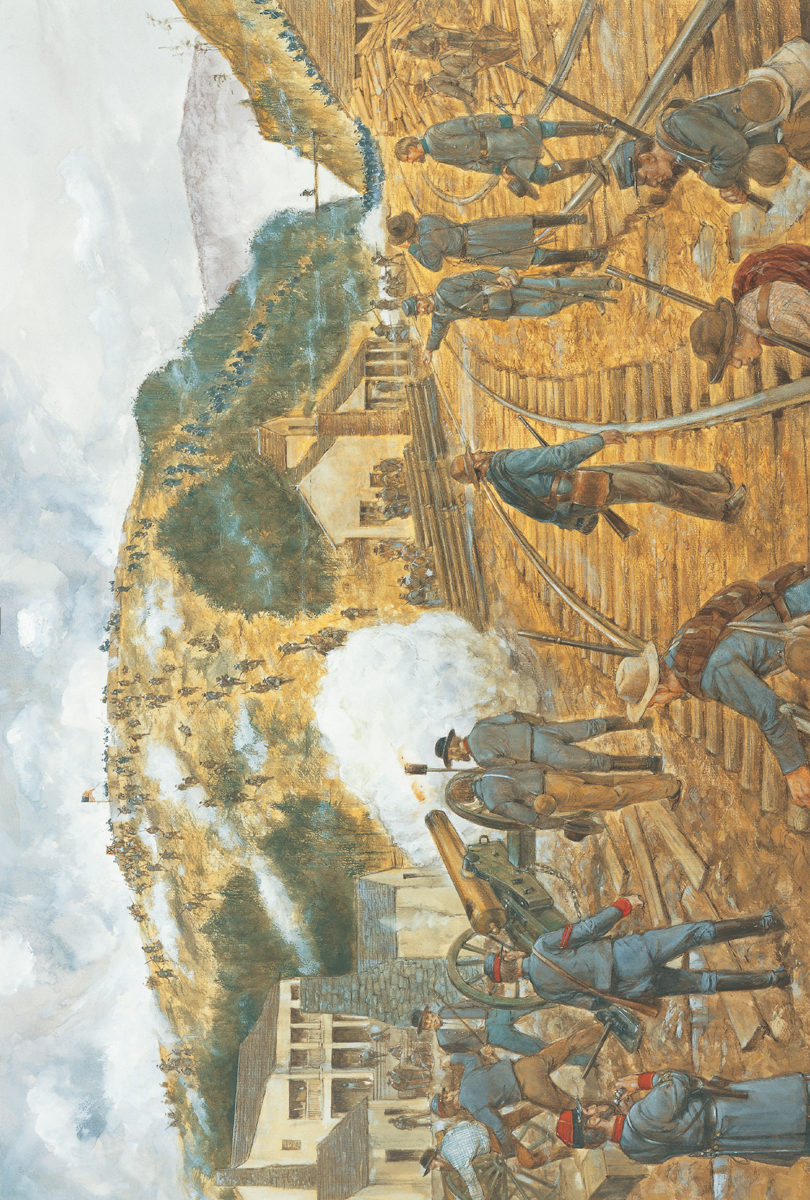David Smith - Sherman’s March to the Sea 1864: Atlanta to Savannah
Here you can read online David Smith - Sherman’s March to the Sea 1864: Atlanta to Savannah full text of the book (entire story) in english for free. Download pdf and epub, get meaning, cover and reviews about this ebook. year: 2007, publisher: Osprey Publishing, genre: Non-fiction. Description of the work, (preface) as well as reviews are available. Best literature library LitArk.com created for fans of good reading and offers a wide selection of genres:
Romance novel
Science fiction
Adventure
Detective
Science
History
Home and family
Prose
Art
Politics
Computer
Non-fiction
Religion
Business
Children
Humor
Choose a favorite category and find really read worthwhile books. Enjoy immersion in the world of imagination, feel the emotions of the characters or learn something new for yourself, make an fascinating discovery.
- Book:Sherman’s March to the Sea 1864: Atlanta to Savannah
- Author:
- Publisher:Osprey Publishing
- Genre:
- Year:2007
- Rating:5 / 5
- Favourites:Add to favourites
- Your mark:
Sherman’s March to the Sea 1864: Atlanta to Savannah: summary, description and annotation
We offer to read an annotation, description, summary or preface (depends on what the author of the book "Sherman’s March to the Sea 1864: Atlanta to Savannah" wrote himself). If you haven't found the necessary information about the book — write in the comments, we will try to find it.
The March to the Sea was the culmination of Union General William T. Shermans 1864 campaign during the American Civil War (1861-1865) and was a devastating example of total war. Confederate hopes in 1864 hinged on frustrating Union forces in the field and forcing Abraham Lincoln out of office in the November elections. However, this optimism was dampened by Shermans success in the battle of Atlanta that same year.
Riding on the wave of this victory, Sherman hoped to push his forces into Confederate territory, but his plan was hindered by a Confederate threat to the armys supply lines.
After much delay, he boldly chose to abandon these, forcing the army to live off the land for the entirety of the 285-mile march to Savannah, destroying all war-making capabilities of the enemy en route, and inflicting suffering not only on Confederate troops, but also on the civilian population. Despite the vilification that this brutal tactic earned him, the march was a success.
Supported by contemporary photographs, detailed maps, birds eye views, and battlescene artwork, this title explores the key personalities, strategies, and significant engagements of the march, including the battles of Franklin and Nashville, and the ultimate fall of Savannah to the Union, to provide a detailed analysis of the campaign that marked the beginning of the end of the American Civil War.
David Smith: author's other books
Who wrote Sherman’s March to the Sea 1864: Atlanta to Savannah? Find out the surname, the name of the author of the book and a list of all author's works by series.

